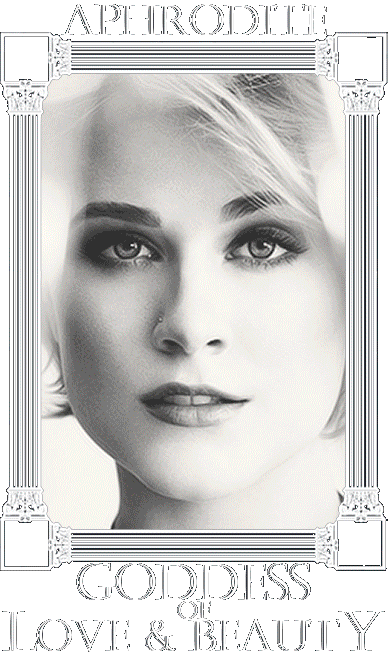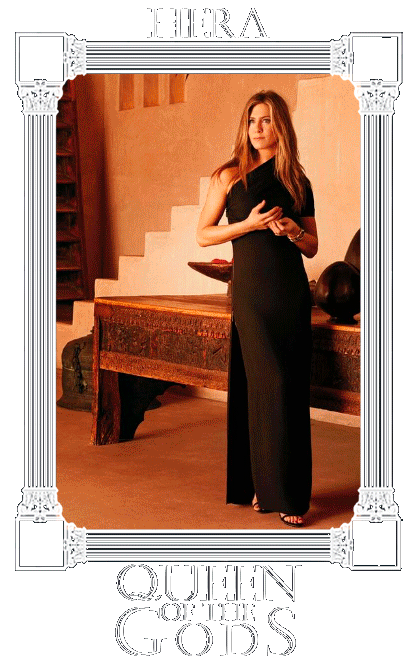
Specifications and rules:
- General Site rules apply. (Of course!)
- I realize this is a lot of reading to do, just to play in an RP. If you're not up to the task, don't apply. The players I've collected here are multi-paragraph roleplayers, and there will be a lot of reading involved.
- You are expected to keep your character relevant. I am providing the main plot, but it is up to you to make your own side plots.
- Each post has a 500-word minimum. If you can't come up with 500 words, you don't have enough to say actually to provide to the story. If you're having a conversation with someone, and thus can't find the minimum, make it a dual-post with the person you're talking with. Dual-posts are posts made together by several players. You can work on them in PMs or in Google Docs before posting them here.
- If you put anything OOC in the IC thread, I will smite you.
- Images are allowed.
- Don't be a dick. We're all here to write together, so work together on plots rather than against each other. We are dealing with a world where gods and mortals coexist. That doesn't mean I will allow god-modding. So, Gods, don't go kill off someone's character just because you are severely more powerful than them. But, mortals, also try to keep in mind that you live in a world where hubris is very much a part of everyday life. If you talk shit about Zeus, you are going to get a thunderbolt to your face. If there are any disputes, I will take action, and it might end in someone getting banned from the thread.
- If there's something you want to play that's not on the list, hit me up. I'm more than open to ideas!
- Please note that this is NOT a smut-centric RP. Sexual situations are bound to happen, but I do ask that you refrain from any severely graphic depictions of sex. If a sexual scene comes up, please use the fade-to-black method. You're here to write a story, not to get off.
- Countries of today exist, however, the only religion that exists are the cults of the various Greek Gods. Especially with today's technology, the proof of these beings is not even debatable. Thus, there are temples for the Twelve Olympians in every major city.
- Mythical places such as islands from Greek myth also exist.
- Terrible sea monsters like Charybdis also exist, beware.
- With technology evolving, monsters have grown more and more extinct to the point where monster rights groups have begun forming.
- Hermes has a hilarious Twitter feed.
Magic:
- Magic is a part of the world, but mostly in the form of the Gods' power. You can earn the favor of a god through sacrifice, which works very easily; whatever you sacrifice, they get. Depending on your sacrifice, the God will get you something in return. If you sacrifice a particularly dashing shade of pink lipstick to Hera, she might help you get married to that cute girl at the bagel shop. If you sacrifice your fairest daughter to Zeus, he might make you the king of your own country. The Gods don't have unlimited magical power either, so picking the right sacrifice to the right god is essential. Don't go sacrificing lipstick to Ares; he's not going to be happy about it.
- While the Gods control most of the world, specific rules apply to them as well. The strongest of these is the Oath. If a God swears on something, they are bound to that promise. If they do not follow through, they die.
- Most humans' only access to any kind of magic comes from the favor of the gods.
The Titanomachy and the Ordering of the Universe:
In the beginning, there was only Chaos. And from Chaos came forth Gaia, the mother to all; Tartarus, The Pit Below; Nyx, the Night Above, and Erebus, the Darkness. From Gaia, the Earth sprung life – the divine races of the skies from her mating with Uranus, the sea-gods from her union with Pontus, the Giants, and the mortal races.
After a prophecy was made, Uranus, the Sky, imprisoned his children, the Hecatonchires and the Cyclopes in Tartarus enraging his mate, Gaia, the mother of life. Borrowing her sister's sword, she charged her son, Cronus, the King of the Titans, to castrate his father. And so it came to be that Chronos, the Lord of Time took the Blade of Light and ended his father's rule. From Uranus' blood that fell on the earth, three sets of children were born; the Gigantes, the Erinyes, and the Meliae; before Cronus cast the member into the sea.
Cronus took the throne from his father, but not before Uranus made the prophecy that his son, too, would be overthrown by his own sons. Afraid that he would lose his reign, Cronus turned into the same tyrant god that his father was; he put his brothers back into Tartarus, and also ate his own children, to prevent the prophecy from becoming real. However, his wife, Rhea, tricked him and saved her youngest child, Zeus, from his father's paranoia.
When Zeus grew up, he became his father's cupbearer, without revealing his true identity. Helped by Metis, the Titaness who later became Zeus' first wife, he gave Cronus a mixture of wine and mustard, causing him to vomit one by one the children he had swallowed. When all of his brothers and sisters were freed, Zeus gathered them and convinced them to start a rebellion against their father.
Thus started the Titanomachy. Zeus released the Hecatonchires and the Cyclopes from Tartarus and asked their help against their brother. They all agreed; the Hecatonchires started hurling rocks against the Titans, while the Cyclopes created the famous thunderbolts for their leader.
With the Titans defeated and locked in Tartarus, the Olympians turned their sights to the North and began a war with the Asgardians, the deadly Æsir. Victorious, but not sated, Zeus moved on to the South and waged war against Ra and the Heliopolitans. But the Gods of the Desert had a powerful weapon. The Crown of Egypt was used to control the minds of the Olympians, enslaving them under the rule of the Pharaoh. Only Hera, through her devotion to Zeus, broke from the crown's power, and with her guide, the Olympians were victorious.
Thus it came to be that the Twelve Olympians ruled Earth and all in it. Zeus, along with his brothers Poseidon and Hades, divided the universe by drawing straws; Zeus won and became the king of the sky, as well as the ruler of mortals and gods; Poseidon became the ruler of the seas; while Hades, who drew the shortest straw became the ruler of the Underworld.
Races:

Background: Most powerful of the children of Gaia are the children that came from Uranus. The most powerful being in the universe is the primeval Chaos. A person's power can roughly be prophesied from their proximity to Chaos. Thus, we will be using a generation system, where the protogenoi (Elder Gods) would be the first generation. Chronos would be 3rd, Zeus would be 4th, and Ares would be 5th. It is, therefore, safe to assume that Zeus is more powerful than Ares. However, this system does not always count, as some races are stronger than others. Even if a daimon is 3rd generation, he is still not as powerful as a god.
Notable myths: The Twelve Olympians
Ambrosia: The way gods maintain their immortality is by eating ambrosia. Ambrosia comes from fountains of power, and each god has their own depending on their area of influence. That means that the more war there is in the world, the more ambrosia is in the fountain of war, which belongs to Ares. The more ambrosia Ares drinks, the more powerful he is. This is the reason the Olympians went to war with the Asgardians and the Heliopolitans. Because if they did not, they would have to share the ambrosia with the other gods that shared their fountain. This effectively means that the gods feed off their respective areas of power. Ambrosia can be consumed by any race but is obviously highly guarded by the gods. This also means that gods don't crave regular food; they can, however, enjoy it.
Powers: Powers are often individual to each god. Depending on where their strength lies, their abilities are reflected. Gods are not all-powerful magicians; they do, however, have a few powers in common:
- Immortality: As long as a god drinks ambrosia, they don't age or get diseases (excluding specific poisons.) They cannot be killed by conventional means. This also means that if their influence in the world grows weak, they might lose their immortality and perish ultimately. Hephaestus has grown immensely in power of the last century as the god of technology. Oppositely, as hunting has become archaic and the wilderness has been tamed, Artemis' fountains of ambrosia have significantly decreased.
- Superhuman attributes: It is not just in magic that gods out-power mortals. Their physical bodies are well beyond what would be considered normal in aspects such as speed, strength, and stamina. A regular god can lift about 25 tons, but the more athletic gods may be stronger.
- Magic: While few gods have much knowledge in the realm of magic, they do have such power over mortals, that they can do various curses to them, such as inciting madness, or turning them into plants or animals.
- Avatars: While gods cannot teleport, they can appear in whatever artwork they have been depicted in, may it be statues, paintings, photographs, even murals. It works by them possessing a piece of art. They have diminished strengths as an avatar, but it does provide for them to appear all over the world in an instant.

Background: Witches are the chosen champions of the goddess Hecate. It is a codependent relationship as Hecate requires people to practice witchcraft for her to gain her ambrosia. She is, however, always the one in charge. To become a witch, one has to be initiated and chosen by the Dark Lady. While regular mortals can attempt to do magic, this will always rely on prayer and sacrifice to a specific god. Witches are connected to magic themselves, and so they can perform miracles on their own. However, no one will be shooting fireballs out of their hands. Witchcraft is a very ritual-based magic, and so they work mostly in creating charms and wands. Even the mighty witch Circe used a wand to perform her spells of theriomorphosis. There are about 100 witches in the world at one time. While it is often believed that witches draw their power from the moon and the night, they do, in fact, draw it from the stars.
Notable Myths: Hecate; Circe; Pasiphae
The Oath: Like gods, witches are bound to the rules of magic. This means that if they swear on something, they too have to keep their end of the bargain, or they will die.
Powers: Witchcraft is a broad subject, and there is no school to teach these individuals. Usually, witches learn from the person who initiated them; otherwise, they must rely on their own experimentation or dead witches' grimoires. There are a few books on magic that are known to be useful for anyone practicing magic, such as Cunningham's encyclopedias.
- Transmogrification: The most regular kind of witchcraft is turning something into something else. Because this is the basis for all witchcraft, it is also the most common. They can't create something out of nothing, and thus all spells must take one thing and transform it into what it wanted.
- Telekinesis: The ability to move things with the mind.
- Creation of charms and wands: Using crystals and herbs, witches can create objects for magical purposes. This is by far the most powerful tool of a regular witch, as they can create the object during a ritual and keep the forces of such an event for later use.
- Clairvoyance: Witches use various spells to predict the future. This is not the same as being an oracle. Oracles get clear visions of what the future entails, witches can only decipher signs to get an idea of what's to come.
- Necromancy: Powerful witches learn how to summon the dead through seances. This is rarely a feat accomplished without calling on the help of Hecate or Persephone.
- The Cross: The most powerful of spells a witch has at their arsenal is the cross. By putting one index finger over the other, the witch draws on the power of the crossroads, and a field of protection is raised around them.

Background: Originating from a union between Ares and a mortal woman, these warriors are technically a form of demi-goddesses. Their prowess for war comes not only from their culture but also from their superhuman abilities. While there was once several tribes of amazons, they have now been banded together on the island fortress of Theymscera and are under the rule of the Olympian gods. When it comes to soldiers, these are the best of the best, and anyone going up against the gods should be afraid. Don't be fooled by the name; these women do not use swords or bullet-reflecting jewelry. As times have changed, so has the weaponry of the amazons, so expect guns blazing.
Notable Myths: Otrera; Belt of Hippolyte
Procreation: To bolster their numbers, but not allowing any males, the amazons do venture off to become pregnant with men from other countries. However, betraying the Amazon Queen by not returning is punishable by death.
Powers: Apart from living in a culture that breeds soldiers and having extensive knowledge of weaponry, the amazons also have a few gifts from their ancestral connection to the god of war.
- Superhuman strength: Amazons were capable of lifting and throwing human-sized subjects sizable distances, propelling enemies into the air with a single blow, bending solid metal with their bare hands, and punching into concrete walls to no ill effect.
- Superhuman reflexes: Amazons have cat-like reflexes and speed enough that they can potentially outmaneuver bullets.
- Agility: With agility and strength, an amazon can climb walls without much hindrance.
- Stamina: Being gifted with above-human endurance also helps the amazon being the ultimate fighting machine.
- Blood Lust: A negative trait among the amazons is their tendency towards blood-lust, a state where all they can think about is killing. This trait is seen in their society as an utmost disgrace, and taming the blood-lust is a fundamental part of amazon discipline.

Background: While it is by no means common, the gods do, from time to time, fall in love with mortals. Several of the virgin goddesses have lost their chastity over the last millennia and produced children. These half-gods have particular abilities and advantages, and thus grow up to be formidable or terrible influences on mortal society.
Notable Myths: Herakles; Perseus
Powers: The powers of each demigod depends highly on the divine parent. There are, however, a few common attributes among the demigods.
- Accelerated healing: Even without the effects of ambrosia, demigods will take hours to heal what an average mortal would take days. They are, however, not immune to diseases like cancer.
- Decelerated aging: Demigods stay young longer, to the point where even if their hair turns white, they retain their youthful appearance.
- Superhuman attributes: Demigods will often have peak-human conditions for their strength, stamina, and agility. However, nothing above that of a well-trained human, depending on their parentage.

Background: In Ancient times, the most formidable and wealthiest of all nations was that of Atlantis. But due to their hubris, the island nation was swallowed up by Poseidon's might. Feeling guilt over the massive genocide her husband had wrought, the nereid Amphitrite called on the goddess Hecate to strike a bargain. The Drowned were resurrected with gills on their necks to make them able to breathe underwater. Now, several millennia later, Atlantis is the high-seat of the god Poseidon, the Atlanteans serving under him as his faithful chosen. Atlantis houses both the Drowned and the other sea-divinities.
Notable Myths: Atlantis; Triton; Nereides; Tritones;
Powers:
- Amphibian: The Drowned, thanks to their magical modifications, can breathe and move underwater with the utmost ease as well as walk around on land. They can be immersed indefinitely in water without suffering any ill effects and without the need of oceanic traversal gear or breathing apparatus. This means they can breathe underwater, endure the pressures of the deep.
- Superhuman Stamina: Atlanteans can function much longer than any human, without tiring or becoming weak.
- Superhuman Strength: The ability to lift impossible amounts of weight, for instance, towing around fishing boats while tidal waves were crashing down upon them.
- Name:
- Pseudonyms: (If they go by other names, or is called something different in other cultures/Like Hecate is also known as The Morrigan in Celtic countries.)
- Epithets and titles:
- Family: (We don't need your entire family tree, but assuming you have a relation to a god, that would be important.)
- Race: (Immortals: add-in generation)
- Age: (For gods, just put down 'immortal')
- Powers: (Include both racial powers as well as personal)
- History: (For gods: I expect you to at least clear up origin myths (or what your origin is thought by the other gods to be) and put in something about what your god has been doing for the last millennia.)
- Appearance:
- Magical Objects: (if any)
Cast:
Aphrodite by @Semi-Sweet
Hera by @Semi-Sweet
Athena by @Pisces
Hades by @Storm Crow
Eros by @Morpheus
Apollo by @Morpheus
Artemis by @61ArgentFeathersSealEvil
Ares by @Lisanna
Callias Argyris by @Semi-Sweet
Callista Floros by @Pisces
Caliope Leta by @Ualah Braff
Non-playable characters:
- The Fates
- Chaos
- Hecate
- Erebus
- Gaia
- Nyx
- Tartarus
- Eris
- Nemesis
Peitho by @Semi-Sweet
Persephone by @Storm Crow
Hephaestus by @Pisces
Thread overview:
Nemesis: In Love and War
Arc I: Pantheon
Chapter I: The Beginning of the End
While an era of relative peace has been reigning on Olympus, life goes by in the mortal realm. After the end of the yearly Olympic Games, the summer nears its end. However, strife stirs in the human community as an unknown group of women have ransacked and desecrated three temples: The Temple of Athena in Boston, the Temple of Aphrodite in Los Angeles, and the Temple of Zeus in New York. As the world watches the temples burn, the Olympians are summoned to a war council by Zeus to discuss how to deal with the threat. In the mortal realm, the people scatter to make sure they are not caught in the crossfire between the gods and the uprisings.
Characters:

Epithets and titles: The Heavenly; The Deviser; Common to all People; of Shapely Form; of the Sea; Risen from the Sea; The Laughter-loving;
Family: Uranus (father); Hephaestus (Husband); Eros (son);
Race: 3rd generation Goddess
Age: Immortal
Powers:
- Immortality: As promiscuity and free love has become increasingly typical in the world, Aphrodite's dominion has grown. Today's world is obsessed with beauty and sex, precisely to the benefit of Aphrodite.
- Superhuman attributes: While she leaves athletic ability to others, there's one thing that's certain about Aphrodite. She's got stamina.
- Love: in her position as the Goddess of Love, she can make another fall in love, either with herself or others. Myth tells about how she would use this power to make the gods fall in love with mortals. This power is, however, useless against someone who has given their heart to someone else.
- Perfume: Even without intently using her powers, merely being in her presence makes a person drawn to her. A natural pheromone secretes from her skin, much like a queen bee.
In the act of revenge, she used her powers to make the gods fall in love with mortals. However, this act of defiance was quickly put to rest by Zeus when he forced her to bear a child with a mortal man.
The palace of Aphrodite is large enough that she never has to lay eyes on her deformed husband. And when she does, it always ends in a violent dispute. Rather than stay at Olympus, she has spent most of the passing millennia on earth, spreading love and promiscuity all around, with visible effects. Gone are the days when a girl had to marry before she fell in love. As such, she is thriving in ambrosia and power, which only makes her influence on the world even more significant.
Appearance: She is described by poets as having shining eyes with dark lashes. Her skin is so fair it looks like there's a small glow to it. She is a woman who likes her jewelry, and it is rare to find her without any kind of gemstone on her. There is one necklace with an eight-pointed star in it that she never leaves alone for long. Her clothing is described as wearing dresses made of pure white gold and shining diamonds, often with a crown of gold in her hair. Her hair color changes so often, few can actually attest to her real one.
Magical Objects:
- Dove-drawn chariot: Aphrodite's jewel-encrusted, golden chariot is drawn through the sky by a team of doves.
- Triton-drawn chariot: Aphrodite was a goddess of the sea as well as the heavens, and she possesses a sea-going chariot drawn by fish-tailed Tritones.
- Magical girdle: The magical girdle (or cestus) of Aphrodite was woven with the irresistible powers of love and desire. This will make anyone who sees the person wearing fill with longing for them.

Epithets and titles: Queen of the Gods; Goddess of Marriage; Goddess of the Sky; The Unbulled; The Yoked; Of Marriage; Whose Hand is Above; Of the Heights; The Protector of Man;
Family: Cronos (father); Rhea (Mother); Zeus (Husband); Hephaestus (Son); Eros (grand-son); Hebe (Daughter); Ilithyia (Daughter); Athena (Adopted daughter);
Race: 4th generation Goddess
Age: Immortal
Powers:
- Immortality: As marriage and fidelity are dwindling throughout the past 50 years, so is the fountain of ambrosia Hera had so proudly been drinking from. However, even the rising percentage of divorce alone does not explain the dryness of her fountain.
- Superhuman attributes: Hera is known as the protector of man, and she is not afraid of getting her hands dirty. While she doesn't possess the athleticism of goddesses like Artemis, the woman knows how to leave a mark.
- Sky: Hera has control of the heavens. More specifically, clouds and the hydrological cycle. As such, she can command storms, often accompanied by the lightning of Zeus. Hera can see anywhere under the skies.
- Shape-shifting: Like her husband, Hera can morph her body; however, where Zeus takes on the form of animals, she puts on a mask, changing her appearance to whoever in the world.
But married life wasn't as she had expected. Zeus' countless infidelities have caused Hera to become a jealous and spiteful woman. While she is powerless against her husband, she is anything but when it comes to the women baring his children. While she will generally yield to the wrath of her husband, she will stop at nothing to make sure his bastards are dealt with. In this, she is ruthless.
While she was for many years, one of the most revered goddesses in the world, as the divorce rate continues to soar, the focus on her has been shifted more towards her role as the goddess of the sky. In desperation to keep up her fountain of power, she thus creates more and more hurricanes, alienating more and more mortals. She now must rely more on her position with Zeus than her own power to keep herself alive.
Appearance: Hera is the ideal classical woman. She carries herself with royal stature and a queenly grace. She is usually represented as a majestic woman at a mature age, with a beautiful forehead, large and widely opened eyes, and with a grave expression commanding reverence. She will always be wearing a crown or diadem to remind those around her of her position as queen of the gods and men.
Magical Objects:
- Horse-drawn chariot: When descending from Olympus, she has a chariot drawn by two white horses, often followed by her entourage of hand-maidens and her daughter Hebe.
- The Garden of Hesperides: Hera's orchard is the only place to get the mythical Golden Apples. While some heroes in the past have found a way to steal from her, most that try to end up in Hades. The Golden Apples come in various sorts, each with different effects ranging from the vivifying to the fatal.
- The Mirror of the Vala: Hera will go to her orchard often, not to pick apples, but for the mystical mirror hidden in a tower there. She will ask questions to this dark glass and gain knowledge that would otherwise be hidden from her.

Epithets and titles: Witch boi;
Family: Jason Argyris (father); Agatha Argyris (Mother); Alexander Argyris (Brother); Nicholas Argyris (Brother);
Race: Witch
Age: 22
Powers:
- Transmogrification: While he's not at the level where he can turn men into pigs yet, he has mastery of the basics like turning water into fire, and copper into gold.
- Creation of charms and wands: Callias sells his charms at a local bookstore. Depending on their use, they are either made from crystals on a metal string or a leather pouch of herbs. While he can't outright make anyone pregnant, he can increase a person's fertility.
- Clairvoyance: The first bit of magic he learned was the tarot. As such, this is his most reliable ability; however, he knows the results are highly interpretational and cannot be used as an exact science. He seems to have a sixth sense about whether or not a person can be trusted and is good at seeing through a person's bad sides.
- The Cross: He has lived a reasonably safe life, and only once had to use the Cross to protect himself. But it worked.
- Alchemy: Even with his knowledge of herbs, Callias' mastery of alchemical solutions is unparalleled, to the point it seems her has a sixth sense for the art. He has a natural understanding of how various ingredients play together, something that also carries over to his cooking skills.
Agatha was a witch in her own right, being chosen by Hecate an early age. She was a strong clairvoyant, but never belonged to a coven. As such, she never had a lot of training, so when Callias was chosen at the age of 13, it was not due to an initiation ritual. For a long time, all he studied was the tarot, as his clairvoyance never seemed to reach his mother's level.
Like his mother, Callias is a solitary witch. Even when he went to Boston for school, a place with a fair amount of sorcerers, he still stayed away from covens. He is now starting his graduate degree while working at a local books and curiosities shop. He shares a flat with a childhood friend of his.
Appearance: Callias has inherited his mom's deep-blue eyes, but his father's hazelnut hair. He has a fondness of dark clothing and black nail polish. He doesn't like smiling in pictures, because smiling for that long makes him feel awkward. His emotions are usually found in his eyes, but not on his face. He carries the intimidating presence of a Leo and is rarely caught in a staring match.
Magical Objects:
- Iridescent Necklace: He is most often wearing an enchanted necklace, that he uses for various magic, whenever something needs a little extra juice.
- Tarot cards: Like many tools, the tarot cards only work with the magic that a witch puts in them. As such, they need to be cleansed after every use, or the reading might come out wrong.
- Sigil tattoo: On the side of his arm, he has three symbols tattooed to help him with his spell-casting. The symbol of Hermes' staff, the Caduceus helps him when he is performing healing spells. The Eye helps him in telepathic endeavors, and the Pentagram helps him for power.
Last edited:









